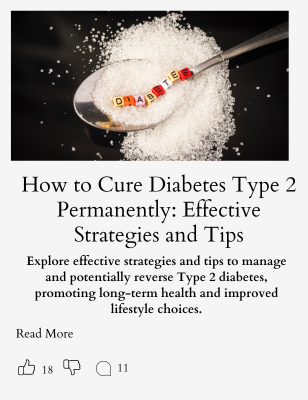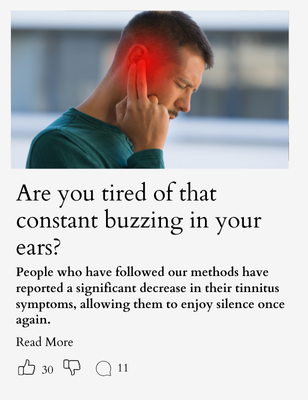Mental health and physical health are deeply connected. Recent studies show that taking care of our minds can help our bodies, and vice versa. This link goes beyond just feeling good or bad.
Mental disorders can affect physical health in many ways, from changing how we eat to impacting our energy levels. For example, depression might make someone less likely to exercise or eat well. On the flip side, chronic health problems can lead to mental health issues like anxiety or stress.
New research is shedding light on how physical activity can improve mental health. Regular exercise has been shown to help with mood and lower stress. It can even help some people manage symptoms of mental health conditions. This two-way street between mind and body is becoming clearer as more studies are done.
Key Takeaways
- Mental and physical health are closely linked and affect each other.
- Regular physical activity can improve both mental and physical well-being.
- New research is uncovering more ways the mind and body interact to influence overall health.
Exploring the Mind-Body Connection
The mind and body are closely linked. Research shows that mental health can affect physical health, and vice versa. This connection has important implications for overall wellbeing.
History of Mind-Body Research
Early philosophers like Descartes viewed the mind and body as separate. This idea of mind-body dualism dominated Western thought for centuries.
In the 20th century, scientists began studying links between mental states and physical processes. Psychologists examined how emotions and stress impact health.
Key findings emerged:
- Stress can weaken the immune system
- Depression increases risk of heart disease
- Anxiety may worsen digestive issues
These discoveries challenged the notion that mind and body operate independently. They paved the way for an integrated view of health.
Contemporary Views on the Mind-Body Relationship
Modern research confirms the strong connection between mental and physical health. Scientists now recognize that psychological factors play a key role in many illnesses.
Studies show:
- Positive thinking can boost healing
- Meditation may reduce inflammation
- Social support improves cancer outcomes
Brain imaging reveals how mental states affect bodily functions. For example, mindfulness practices can lower blood pressure and heart rate.
This research has practical applications. Doctors now consider both physical and mental health when treating patients. Many hospitals offer mind-body therapies like yoga alongside traditional treatments.
Psychological Stress and Physical Health
Mental health and physical health are closely linked. Stress can have major impacts on the body’s systems and functions. Mental health issues may also increase risks for certain physical conditions.
Chronic Stress and the Immune System
Ongoing stress can weaken the immune system. This makes people more likely to get sick. The body releases stress hormones like cortisol when under pressure.
Too much cortisol over time can:
- Decrease white blood cells
- Increase inflammation
- Make it harder to fight off viruses and bacteria
Chronic stress may lead to frequent colds and infections. It can also make existing health problems worse. People with high stress often heal more slowly from injuries and illnesses.
Mental Health Disorders and Chronic Diseases
Mental health conditions are linked to higher rates of physical illness. Depression and anxiety can increase risks for:
- Heart disease
- Diabetes
- Autoimmune disorders
This connection goes both ways. Having a chronic disease raises the chances of developing mental health issues. For example, people with arthritis often experience depression.
Psychological factors like negative thinking patterns may play a role. Poor self-care and unhealthy coping behaviors can also contribute. Getting treatment for mental health problems may help improve physical health too.
The Role of Mental Well-Being in Physical Fitness
Mental health plays a key part in physical fitness. A positive mindset can boost workout results and help people stay active. At the same time, exercise can improve mood and mental health.
Exercise and Mental Health
Physical activity links to better mental health. Regular exercise can ease stress, anxiety, and depression. It releases feel-good chemicals in the brain called endorphins.
Exercise also helps people sleep better. Good sleep is vital for mental health. Physical activity can boost self-esteem and body image too.
Studies show that even short bursts of exercise can lift mood. A quick walk or jog can provide a mental boost. Team sports offer social benefits that further improve mental well-being.
The Psychological Impact of Physical Activity
Physical activity affects mood and mental states. Exercise can increase energy and reduce fatigue. It helps people feel more alert and focused.
Regular workouts can build mental toughness. Pushing through challenges in exercise builds resilience. This skill carries over to other parts of life.
Exercise gives people a sense of accomplishment. Meeting fitness goals boosts confidence. It can provide structure and routine, which help mental health.
Physical activity also offers a healthy way to cope with stress. Instead of turning to unhealthy habits, exercise provides a positive outlet for tension.
Nutrition’s Impact on Mental and Physical Health
Food choices affect both our bodies and minds. What we eat influences our mood, brain function, and overall health.
Dietary Patterns and Mood Disorders
A healthy diet can boost mental well-being. Research shows that eating habits are linked to mental health in young people. Diets high in fruits, vegetables, and whole grains may lower the risk of depression.
On the flip side, junk food and sugary drinks can harm mental health. These foods may increase the chances of anxiety and mood swings.
Studies suggest that a mix of good nutrition and exercise works best. This combo can improve both mental and physical health.
Deficiencies and Brain Health
Lacking certain nutrients can hurt brain function. For example, not getting enough omega-3 fatty acids may lead to memory problems.
Vitamin D is key for brain health. Low levels are linked to depression and cognitive decline. Getting enough vitamin D from sunlight, food, or supplements is important.
B vitamins play a big role in brain health too. They help make brain chemicals that affect mood and thinking. Eating foods rich in B vitamins or taking supplements can support brain function.
Iron is crucial for brain health. Low iron can cause fatigue and trouble focusing. Good sources include lean meats, beans, and leafy greens.
Interplay of Sleep on Mental and Physical States
Sleep plays a crucial role in both mental and physical well-being. It affects mood, cognitive function, and various bodily systems. Poor sleep can lead to health issues, while good sleep promotes overall wellness.
Sleep Quality and Emotional Well-Being
Sleep and mental health are closely linked. Good sleep helps regulate emotions and improves mood. People who sleep well often feel more positive and energetic.
Poor sleep can cause irritability and anxiety. It may also worsen symptoms of mental health conditions. Chronic sleep issues can lead to depression and other mood disorders.
Sleep affects cognitive function too. Well-rested individuals typically have better memory and focus. They can think more clearly and make decisions more easily.
Sleep Disorders and Physical Health Risks
Sleep disorders can harm physical health. Conditions like insomnia and sleep apnea increase risks for several diseases.
People with sleep problems may face higher chances of:
- Heart disease
- High blood pressure
- Diabetes
- Obesity
Poor sleep quality can weaken the immune system. This makes it harder for the body to fight off illnesses. It can also slow down healing and recovery from injuries.
Sleep issues can affect hormone balance. This may lead to weight gain and metabolic problems. It can also impact growth and development in children and teens.
Therapeutic Approaches and Lifestyle Interventions
Mental health and physical health are closely linked. New treatments focus on both the mind and body to improve overall wellness.
Psychotherapy and Physical Symptoms
Lifestyle changes can have a big impact on mental health. Exercise, diet, and sleep habits all play a role. Therapists now often recommend these changes along with talk therapy.
Some physical health issues can be helped by mental health treatment. For example, stress reduction techniques may lower blood pressure. Cognitive behavioral therapy can help manage chronic pain.
Doctors are starting to treat the whole person, not just symptoms. This means looking at both mental and physical health together.
Holistic Treatments and Overall Health
Integrating physical activity into mental health care is becoming more common. Exercise can boost mood and reduce anxiety. It may also help with focus and sleep.
Diet changes can affect mental health too. Eating more fruits and vegetables may improve symptoms of depression. Cutting back on processed foods and sugar can help stabilize mood.
Mindfulness and meditation are other useful tools. These practices can reduce stress and improve overall well-being. They may also help with physical issues like high blood pressure.
Future Directions in Mind and Body Research
New approaches are emerging to study the link between mental and physical health. Researchers are using innovative methods and technologies to gain deeper insights into this connection.
Innovative Research Approaches
Scientists are exploring new ways to study mind-body interactions. Brain imaging techniques like fMRI help map how mental states affect physical processes. Genetic studies look at how genes influence both mental and physical health.
Researchers are also using wearable devices to track mood and physical symptoms in real-time. This gives a more complete picture of daily fluctuations.
Large-scale population studies now combine mental health surveys with physical exams. This helps find connections between psychological factors and disease risk.
Integrating Technology for Health Monitoring
Smart devices are changing how people track their health. Apps now allow users to log both mood and physical symptoms easily.
Artificial intelligence is being used to analyze this data and spot patterns. This could help predict health issues before they become serious.
Virtual reality shows promise for treating both mental and physical conditions. It can reduce pain and anxiety during medical procedures.
Telemedicine platforms now offer integrated care for mental and physical health. This makes it easier for patients to get comprehensive treatment.
Frequently Asked Questions
Mental and physical health are deeply interconnected. Recent research has uncovered important links between these two aspects of well-being. Let’s explore some common questions about this relationship.
What are the direct effects of physical health on mental well-being?
Physical health strongly influences mental well-being. Regular exercise boosts mood and reduces anxiety. It releases endorphins, which act as natural painkillers and mood elevators.
A healthy diet also plays a key role. Nutrient-rich foods support brain function and can help manage depression symptoms.
Can mental health conditions have a measurable impact on physical health outcomes?
Mental health conditions can significantly affect physical health. People with severe mental illnesses often face higher rates of physical health problems.
Chronic stress and depression can weaken the immune system. This makes people more susceptible to illnesses and infections.
In what ways do lifestyle changes aimed at physical health benefit mental health?
Lifestyle changes for physical health often improve mental health too. Quitting smoking reduces anxiety and depression risks.
Getting enough sleep helps regulate emotions and improves cognitive function. Limiting alcohol intake can lead to better mood stability and reduced anxiety.
How is the correlation between mental and physical health explained by recent medical studies?
Recent studies show a strong link between mental and physical health. The mind-body connection is now better understood through advanced brain imaging techniques.
Inflammation in the body has been linked to both physical and mental health issues. This suggests a shared biological basis for many conditions.
What role does mental health play in the management and recovery of chronic physical illnesses?
Mental health is crucial in managing chronic physical illnesses. A positive outlook can improve treatment adherence and outcomes.
Stress management techniques help patients cope with pain and discomfort. This can lead to faster recovery and better quality of life.
How do societal perceptions of mental illness affect the overall discourse on physical and mental health?
Societal views on mental illness shape health discussions. Stigma can prevent people from seeking help for mental health issues.
Public awareness campaigns have improved understanding. This has led to more integrated approaches to healthcare, addressing both physical and mental needs.
Conclusion
Mental health and physical health are deeply connected. New research shows this link is stronger than we thought.
Physical activity can boost mental health. Regular exercise may help prevent and treat mental disorders. It can improve mood and reduce stress.
Mental health issues can affect physical health too. People with mental disorders often have higher rates of physical illness.
Healthcare should address both mental and physical needs. Treating the whole person leads to better outcomes.
More research is needed to fully understand these connections. Scientists are studying how mental and physical health interact over time.
Schools and workplaces can promote both mental and physical wellness. Simple steps like encouraging exercise and stress management can make a big difference.
By caring for both mind and body, people can improve their overall health and quality of life.















